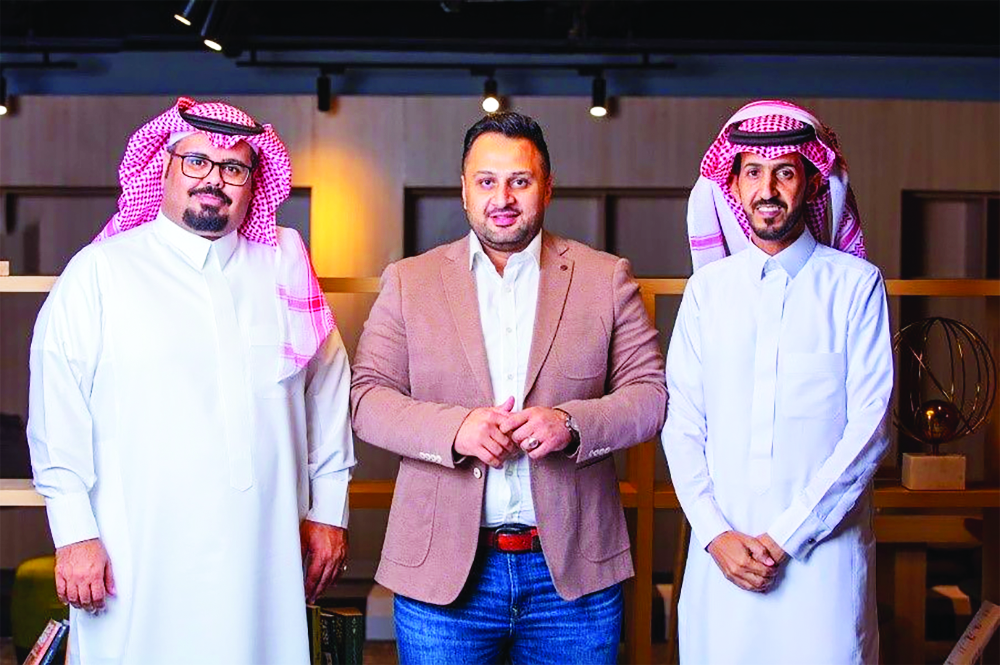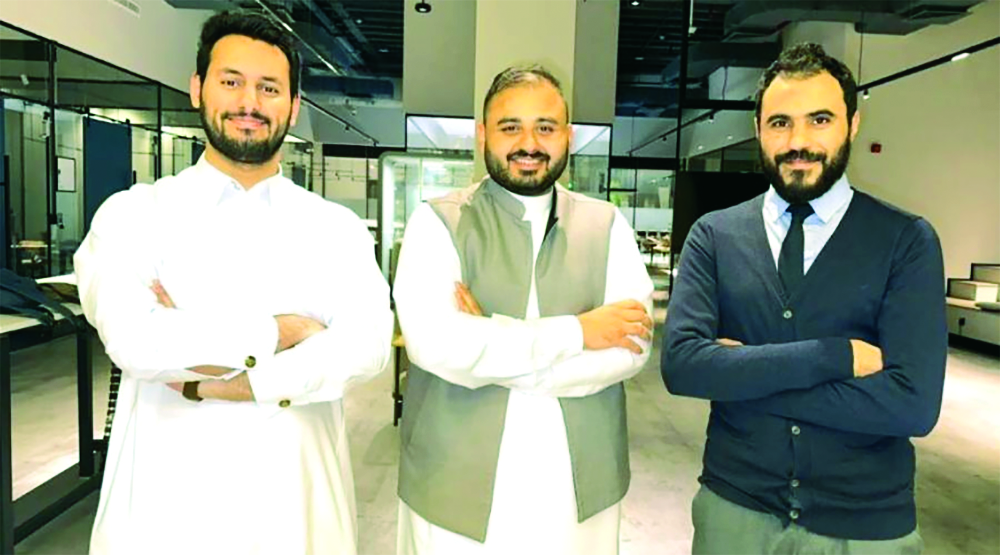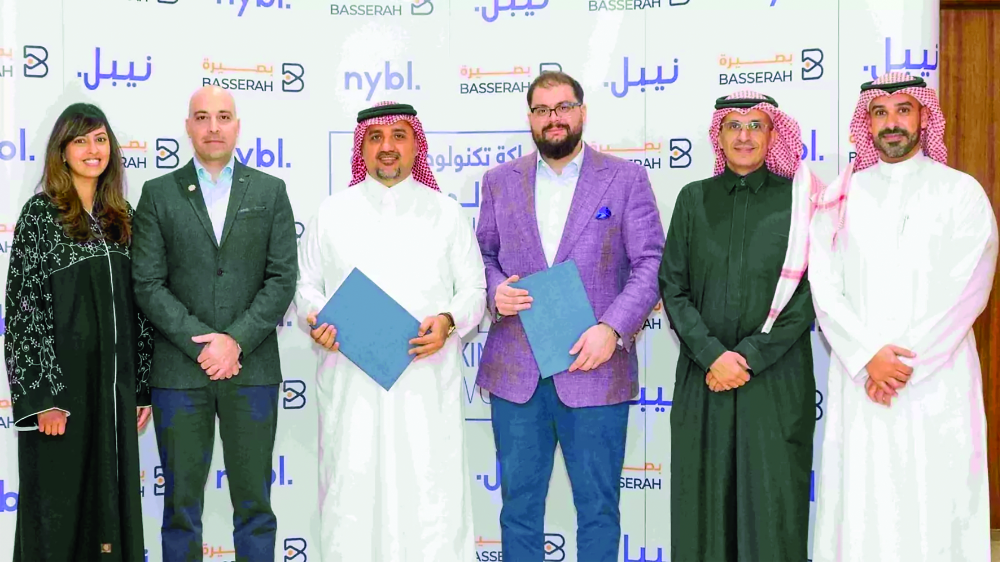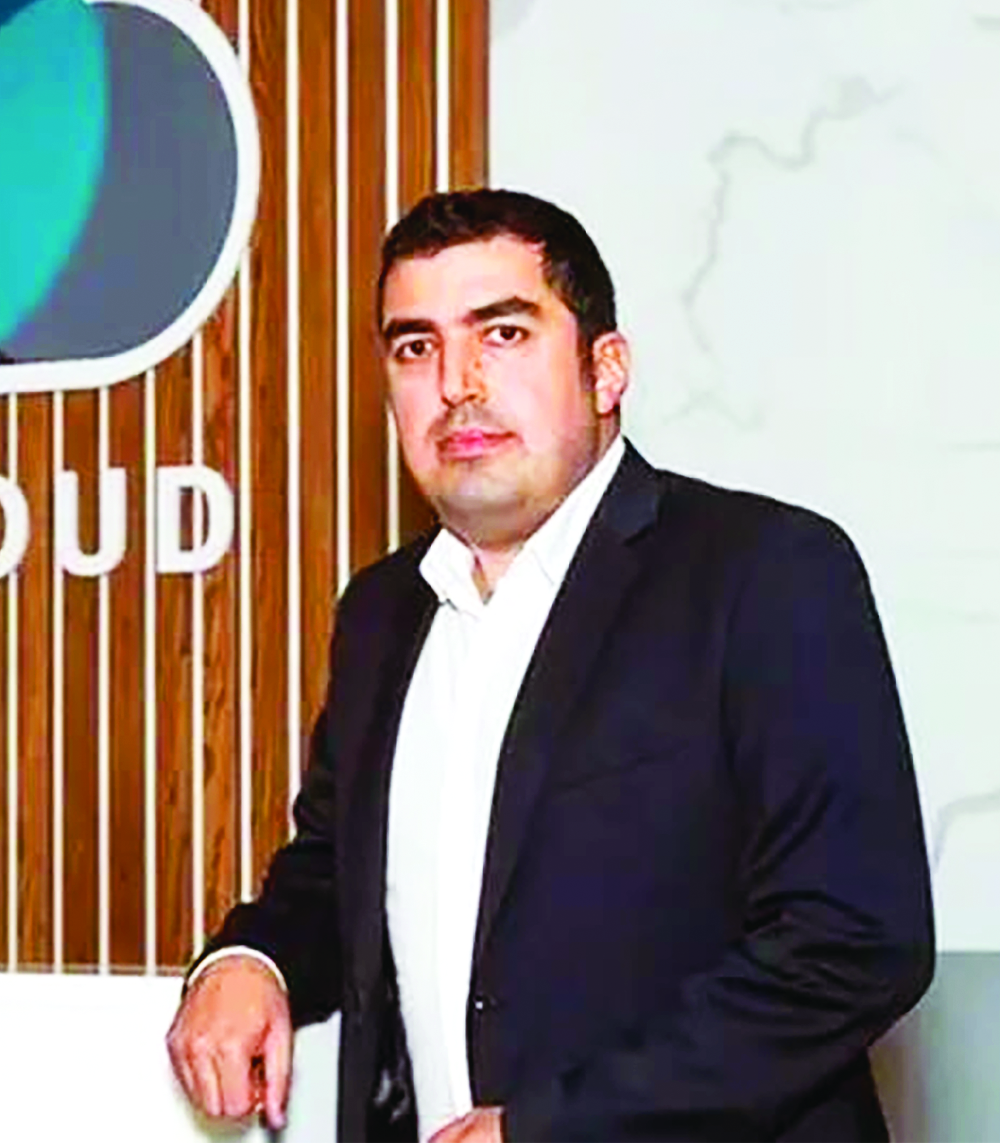CAIRO: Startups across the Middle East and North Africa region have garnered substantial support through significant funding rounds over the last seven days.
The regional venture capital ecosystem experienced heightened activity, with startups securing large investments, with Saudi Arabia at the forefront.
The Kingdom’s logistics startup PIESHIP successfully closed an undisclosed pre-seed investment round from SEEDRA Ventures, Nama Ventures, and various angel investors.
Established in 2023 by founders Nasser Al-Harthi, Musaed Al-Amri, and Mohammed Mohsen, PIESHIP offers a comprehensive suite of logistics solutions.
These include warehouse management, a dedicated app for shipment deliveries, and a range of technical services aimed at enhancing logistics operations.
“PIESHIP provides innovative solutions in the logistics sector to improve the last-mile delivery companies’ experience, aiming to deliver shipments faster with practical communication tools with customers. PIESHIP has also enabled delivery companies to increase the efficiency of delivery representatives by creating an effective competitive environment among employees,” Al-Harthi said.
The company has announced plans to allocate the new funds towards its business expansion, as well as the research and development of innovative products and services aimed at enriching customer experience and operational efficiency.

Established in 2023 by founders Nasser Al-Harthi, Musaed Al-Amri, and Mohammed Mohsen, PIESHIP offers a comprehensive suite of logistics solutions. (Supplied)
Saudi Arabia’s PhysioHome secures seed round
Saudi Arabian healthtech startup PhysioHome has successfully closed a seed funding round, securing an undisclosed amount from a group of private angel investors.
Established in 2021 by Ahmed Sidam, PhysioHome is dedicated to providing comprehensive rehabilitation services directly to patients’ homes or in dedicated rehabilitation centers.
Currently, their services span across nine cities within the Kingdom, including both medical and behavioral rehabilitation for children.
This recent capital injection follows PhysioHome’s pre-seed funding round in 2022, which was spearheaded by Sanabel 500 and the Saudi Venture Capital Co., alongside contributions from angel investors associated with Oqal.

Established in 2021 by Ahmed Sidam, PhysioHome is dedicated to providing comprehensive rehabilitation services. (Supplied)
Saudi Arabia’s Basserah merges with UAE’s nybl
Saudi-based data automation company Basserah and UAE’s artificial intelligence innovator nybl have announced a merger that will expand their footprint in the regional market.
Nybl, established in 2018 by Noor Al-Nahhas, specializes in making AI technology accessible, offering solutions for real-time failure prediction, prescription, prevention, and optimization in critical industries to enhance productivity and reduce expenses.

Saudi-based data automation company Basserah and UAE’s artificial intelligence innovator nybl have announced a merger aimed at expanding their footprint in the regional market. (Supplied)
On the other hand, Basserah, also founded in 2018 as a part of NOMD Holding, provides services to sectors such as telecommunications, oil and gas, and government, focusing on leveraging data to improve efficiency through robotic process automation.
The merger will retain the nybl brand and team, with Basserah being fully integrated into the combined entity.
This strategic move is set to bolster their capabilities in delivering advanced AI and data automation solutions across a broad range of industries.
UAE’s Exverse secures $3m in funding
Exverse, a UAE-based Web3 gaming platform known for blending traditional AAA-quality first-person shooter gaming with the Web3 space, has successfully secured $3 million in a private funding round. This significant financial boost was led by prominent investors including Cogitent Ventures, Cointelligence, and Moonrock Capital, with additional support from KuCoin Labs, Epic Games, Seedify, and ChainGPT.
Founded in 2020 by Nikita Uriupin, Exverse aims to set a new standard in the gaming world by ensuring that the quality of its first-person shooter games matches or exceeds that of traditional AAA titles.
The freshly acquired funds are earmarked for several key areas of development and expansion. Primarily, the investment will accelerate the launch of Exverse’s eagerly anticipated products.
Additionally, it will enable the company to forge strategic partnerships and bolster its marketing efforts, particularly across the Asia-Pacific region.
UAE’s GameCentric secures $1.5m
The UAE’s emerging gaming platform GameCentric has successfully raised $1.5 million in a funding round from angel investor Bilal Merchant.
Launched in 2023 by Saad Khan, GameCentric will cater to a diverse community of gamers, ranging from competitive to casual players, by creating a unified gaming ecosystem.
This financial boost is set to empower the company with the means to expand its operational reach beyond the Gulf Cooperation Council and MENA regions.
Moreover, the investment will facilitate the enhancement of the platform’s features and elevate the overall gaming experience for its user base.
UAE’s The Cloud raises $12m
The Cloud, a UAE-based cloud kitchen startup, has secured $12 million in funding from MENA Moonshots, part of its ongoing effort to raise a $30 million series B round, which also includes debt financing from Aluna Partners.
Founded in 2019 by Kamil Rogalinski and Georges Karam, The Cloud operates within the business-to-business-to-consumer food technology space, providing restaurant owners the opportunity to optimize kitchen utilization by hosting external food delivery services.

“Looking forward, we continue to actively eye more strategic acquisitions while also seeking to raise further capital” — Georges Karam, CEO of The Cloud
This recent financial infusion will support The Cloud’s ambitious plans to penetrate new markets in Lithuania, Belgium, the Netherlands, and the UK.
As part of its expansion strategy, The Cloud has also completed the acquisition of KBOX, a UK-based food tech company, extending its global footprint to over 200 locations.
Previously, in September 2022, The Cloud successfully raised a $10 million series A round led by Middle East Venture Partners and Olayan Financing Co., with additional backing from Rua Growth Fund.
To date, The Cloud has amassed a total investment of $22 million, positioning it for further growth and innovation in the global food tech landscape.
DFDF participates in Partech’s $300m fund
The Dubai Future District Fund has joined the second closing of Partech Africa II, a pan-African fund managed by global investment firm Partech, contributing to a total raise of $300 million.
This investment round also attracted participation from Africa Re, Orange, AXIAN Investment, and the African Development Bank Group, signaling robust confidence in Africa’s tech ecosystem.
Partech Africa II, which celebrated its first closing a year prior, is set on bolstering its investment strategy across the continent.
The fund aims to support African startups from seed to series C stages, offering initial investments ranging from $1 million to $15 million, a move that underscores the growing interest and potential in Africa’s innovative sectors.
















